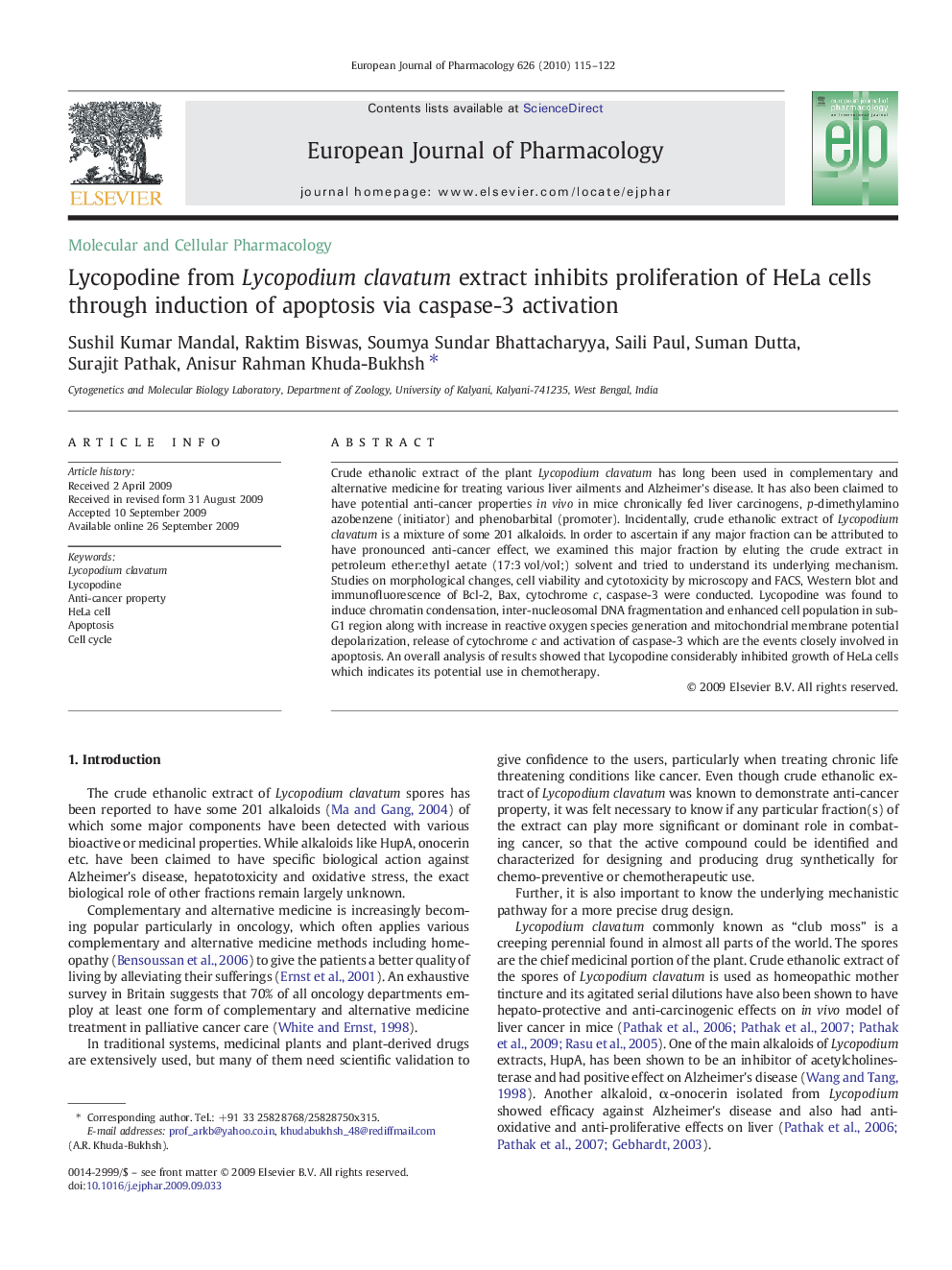| Article ID | Journal | Published Year | Pages | File Type |
|---|---|---|---|---|
| 2533842 | European Journal of Pharmacology | 2010 | 8 Pages |
Crude ethanolic extract of the plant Lycopodium clavatum has long been used in complementary and alternative medicine for treating various liver ailments and Alzheimer's disease. It has also been claimed to have potential anti-cancer properties in vivo in mice chronically fed liver carcinogens, p-dimethylamino azobenzene (initiator) and phenobarbital (promoter). Incidentally, crude ethanolic extract of Lycopodium clavatum is a mixture of some 201 alkaloids. In order to ascertain if any major fraction can be attributed to have pronounced anti-cancer effect, we examined this major fraction by eluting the crude extract in petroleum ether:ethyl aetate (17:3 vol/vol;) solvent and tried to understand its underlying mechanism. Studies on morphological changes, cell viability and cytotoxicity by microscopy and FACS, Western blot and immunofluorescence of Bcl-2, Bax, cytochrome c, caspase-3 were conducted. Lycopodine was found to induce chromatin condensation, inter-nucleosomal DNA fragmentation and enhanced cell population in sub-G1 region along with increase in reactive oxygen species generation and mitochondrial membrane potential depolarization, release of cytochrome c and activation of caspase-3 which are the events closely involved in apoptosis. An overall analysis of results showed that Lycopodine considerably inhibited growth of HeLa cells which indicates its potential use in chemotherapy.
